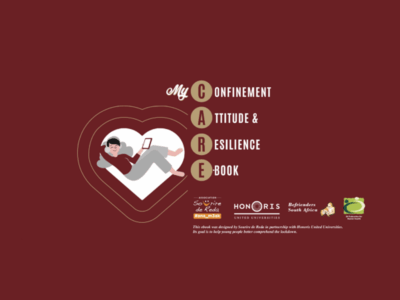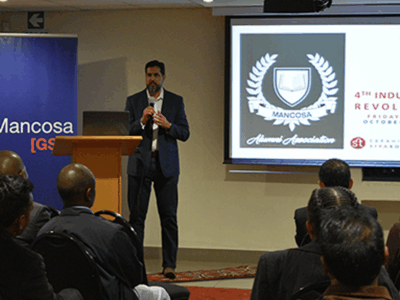Teaching in South Africa: A Journey of Impact and Innovation
South Africa's educational system is in desperate need of more qualified teachers. The average student-to-teacher ratio is 32:1—with an even higher ratio in some provinces, such as the Eastern Cape. More qualified teachers will lead to more qualified pupils who can make a difference in the economy and communities. This is where education courses, such as MANCOSA's Postgraduate Certificate in Education In Further Education and Training Teaching, come in. In this article, we will examine the teaching landscape in South Africa, how teachers can make a difference, and the available courses so you can decide whether to further your career in education.

Teaching in South Africa today: an overview of the landscape
Access to quality education in South Africa has increased steadily since 1994. That said, not all citizens receive proper education, especially those in underserved communities without access to electricity and sanitation.
And, with South Africa’s unemployment rate being 33.5% in 2024, the importance of teachers can’t be understated.
The role of teachers in shaping the future of the country
Teachers are extremely important in helping young people build their intellectual and emotional capabilities.
They aren’t only educators but also motivators. They inspire kids to keep going even when things get hard so they can grow their abilities and learn values that’ll take them far in their personal and professional lives.
Some of the primary responsibilities of teachers are planning and preparing lessons, encouraging students to participate in lessons, and developing new learning materials.
They also need to record student performance and communicate with parents, students, and other teachers to make the learning experience even better.
Plus, sometimes teachers may also need to provide some students with one-on-one support if they need it.
Challenges in South African classrooms
As of 2024, public schools in South Africa cater to nearly 13 million pupils. These schools have steadily declined over the years due to a lack of resources and funding, infrastructural development, and outdated curricula.
Some of the biggest challenges in the South African classrooms are:
- Shortage of resources: Many schools in rural areas lack basic facilities such as libraries, classrooms, and restrooms. Educational materials such as textbooks and technology are also scarce.
- Overcrowded classrooms: As seen earlier, the teacher-to-student ratio is extremely high. There are approximately 32 students for each teacher. This makes it difficult for teachers to manage their classrooms and provide equal attention to students.
- Teacher shortages and training: There is a massive shortage of educated teachers. Furthermore, some teachers are underqualified and lack proper training—which negatively impacts students.
- Language barriers: South Africa has 11 official languages (the country with the most diverse languages in the world). Many students are taught in a language other than their mother tongue, which can impact their understanding and make it more difficult to grasp certain concepts.
- Technology gap: Technology is taking over several industries, including education. While some schools have embraced technology, others who lack the funds can’t. So, some schools can’t provide IT or Computer Applications Technology (CAT) classes. Plus, these schools also can’t offer remote learning when necessary.
How teachers help to advance social change
Teachers guide the way to positive social change in South Africa and worldwide.
They can help advocate for policies that create more opportunities for marginalised groups and address issues such as discrimination and access to good education.
They can also prepare students to think creatively and take steps to make a positive change in our country.
Here are some of the most significant ways they contribute to social change:
- Provide students with knowledge and critical thinking abilities.
- Promote equality and inclusion.
- Be role models and mentors.
- Advocate social justice.
- Help students understand their roles and responsibilities as citizens.
- Encourage students to participate in community initiatives.
How a Postgraduate Certificate in Education can help drive innovation and impact
Courses designed for teachers, like the Postgraduate Certificate in Education (PGCE), are invaluable in fostering innovation.
These postgraduate certification programmes provide educators with different tools and strategies suited to the current educational needs. By equipping teachers to adapt and innovate, such courses can inspire a shift in classroom dynamics, enabling a more engaging and impactful learning experience.
Thanks to qualified educators, schoolchildren not only achieve better academic results but also develop skills that are critical for personal growth.
Innovative teaching methods nurture problem-solving abilities, critical thinking, and confidence. As a result, you will aid in developing the leaders of the future.
Teaching courses available that can empower educators
Several teaching courses are available. The best place to start is with the Bachelor of Education in Senior and Further Education and Training, which is designed to equip you with all you need to become a teacher. If you want to take things a step further, one course that stands out is the Postgraduate Certificate in Education in Further Education and Training Teaching, which equips you to teach grades 10-12 students.
You won’t only learn general teaching skills, but you’ll also learn more about psychology so you can help pupils emotionally. Plus, you can specialise in a particular subject:
- Accounting
- Business studies
- Economics
- Mathematics
- English
- isiZulu
- Afrikaans
- Life Science
- Physical Science
- Geography
Register for a Postgraduate Certificate in Education with MANCOSA
Regardless of the course you choose, becoming an educated teacher or educational leader will help you make a difference in South Africa’s education system.
You can have a look at MANCOSA’s different education courses here:
- Postgraduate Certification in Further Education and Training (FET)
- Bachelor of Education in Senior and Further Education and Training
- Master of Education in Educational Leadership and Management
If you need help choosing the right course, contact us, and one of our consultants will assist you.





